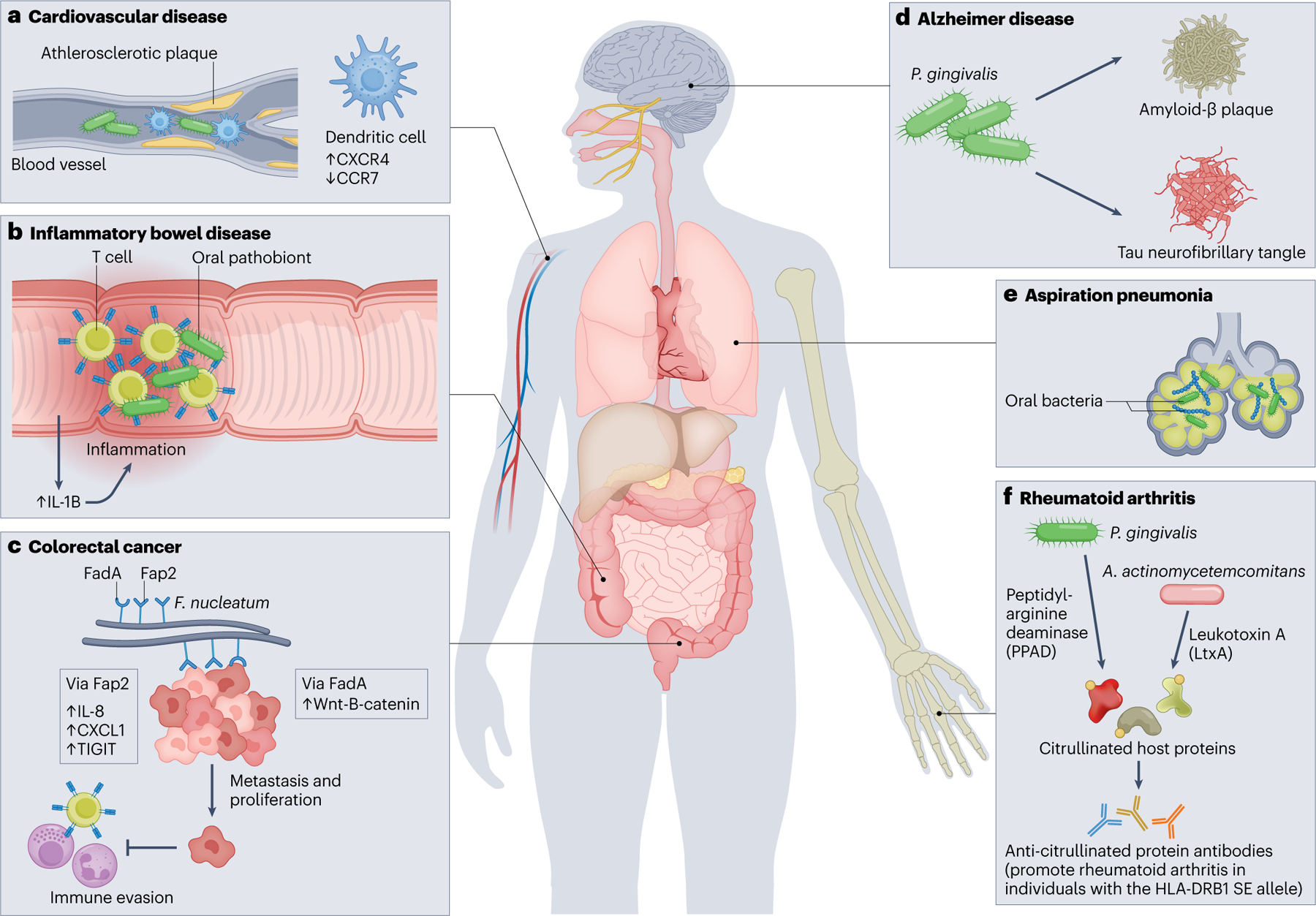The oral microbiome: diversity, biogeography and human health
-
The oral microbiome: diversity, biogeography and human health - 2024
The term "Leaky gut" is a shorthand for the bacteria from the gut microbiome translocating to other parts of the body where they have a negative impact of human health. By analogy, "Leaky mouth"
 would be a shorthand for the bacteria from the oral microbiome translocating to other parts of the body where they have a negative impact of human health.
would be a shorthand for the bacteria from the oral microbiome translocating to other parts of the body where they have a negative impact of human health.
Fig. 3 |
Links between the oral microbiota and systemic diseases.
The oral microbiota, and particularly periodontal pathogens, have been increasingly linked to a number of systemic diseases, either directly through translocation of oral pathogens to other sites or indirectly through modulation of the host immune system and inflammatory response. This illustration highlights a number of these links with the insets highlighting the mechanism(s). a, Cardiovascular disease: in vitro and ex vivo studies have suggested that Porphyromonas gingivalis bacteraemia alters dendritic cell behaviour, causing pro-inflammatory accumulations at atherosclerotic plaques156. b, Inflammatory bowel disease: animal studies have illustrated that when T cells primed and reactive to oral pathobionts encounter ectopic periodontal pathogens in the gut, they increase inflammation (particularly via IL-1B) and contribute to colitis141,142. c, Colorectal cancer: mouse models and human studies have established that Fusobacterium nucleatum outgrowth synergizes with tumour growth via multiple mechanisms. The F. nucleatum surface protein Fab2 binds to cancer cells, inducing pro-metastatic chemokines, and activates TIGIT, allowing for evasion of immune surveillance by the tumour143,147. Another F. nucleatum surface protein, FadA, stimulates cancer cell proliferation by inducing E-cadherin-mediated Wnt-β-catenin signalling145. d, Alzheimer disease: animal models and observational studies in humans have shown that P. gingivalis, on reaching the brain via bacteraemia, causes neuronal inflammation, degrades tau protein causing neurofibrillary tangles and contributes to the formation of amyloid-β plaques, reviewed elsewhere155. e, Aspiration pneumonia: human studies have shown that the translocation of oral bacteria to the lung can lead to pneumonia, reviewed elsewhere138. f, Rheumatoid arthritis: in mice, P. gingivalis that reaches the bone marrow skews immune cell development via IL-6, promoting production of osteoclasts and contributing to bone loss153. Meanwhile, animal and human studies have illustrated that P. gingivalis and Aggregatibacter actinomycetemcomitans can citrullinate host proteins, which triggers autoimmunity159,160.